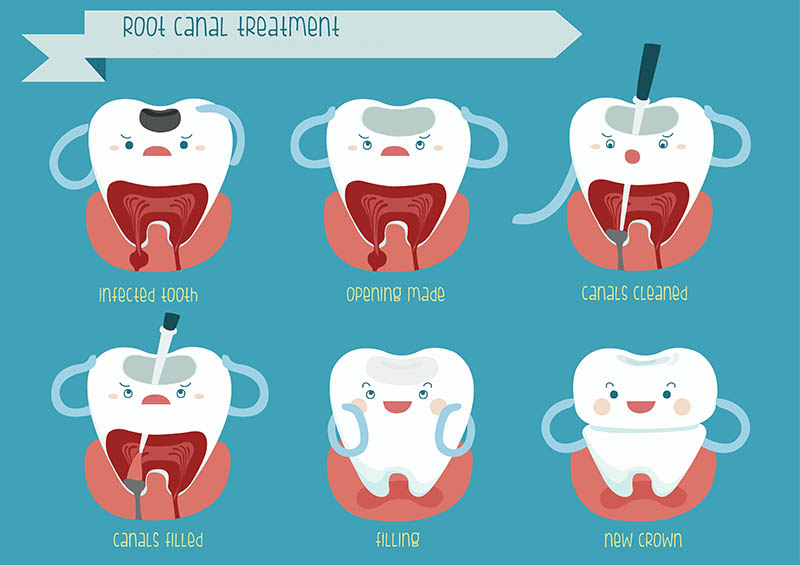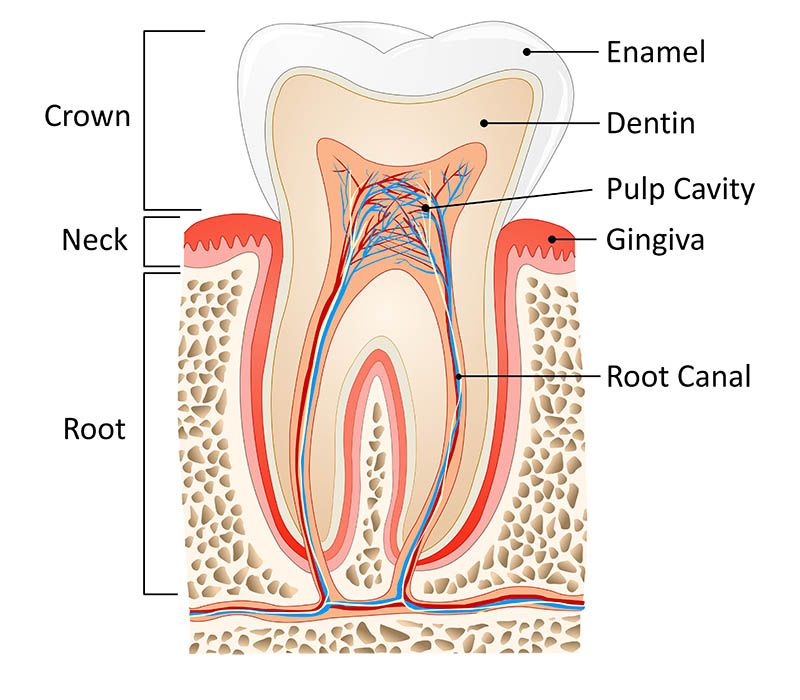First Things First...
What is a ROOT CANAL and What is involved?
Root canal treatment is designed to eliminate bacteria from the infected root canal, prevent reinfection of the tooth and save the natural tooth. When one undergoes a root canal, the inflamed or infected pulp is removed and the inside of the tooth is carefully cleaned and disinfected, then filled and sealed.
Inside your tooth, beneath the white enamel and a hard layer called dentin, is a soft tissue called pulp. This tissue contains blood vessels, nerves and connective tissue, which help grow the root of your tooth during its development. A fully developed tooth can survive without the pulp because the tooth continues to be nourished by the tissues surrounding it.


Some Advantages of Our
ROOT CANALS
Efficient chewing
Normal biting force and sensation
Natural appearance
Protects other teeth from excessive wear or strain
Root Canal Procedure
What Is the Root Canal Process Like?
A root canal is very similar to a routine filling and can usually be completed in one or two appointments, depending on the condition of your tooth and your personal circumstances. Getting a root canal is relatively painless and extremely effective.
When you undergo a root canal or other endodontic treatment, the inflamed or infected pulp is removed and the inside of the tooth is carefully cleaned and disinfected, then filled and sealed with a rubber-like material called gutta-percha. Afterwards, the tooth is restored with a crown or filling for protection and will continue to function like any other tooth. You’ll be back to smiling, biting and chewing with ease in no time!
Apply Today and ...
Have the smile you always wanted


Root Canals
Common questions & answers
Q: Does a root canal hurt?
A: Since patients are given anesthesia, a root canal isn’t more painful than a regular dental procedure, such as a filling or getting a wisdom tooth removed. However, a root canal is generally a bit sore or numb after the procedure, and can even cause mild discomfort for a few days.
Q: How do you know if you need a root canal?
A: There are a few symptoms that mean you might need a root canal—
Severe pain while chewing or biting
Pimples on the gums
A chipped or cracked tooth
Lingering sensitivity to hot or cold, even after the sensation has been removed
Swollen or tender gums
Deep decay or darkening of the gums
Can I go to school or work after getting a root canal?
Although you will most likely be numb for 2-4 hours following the procedure, most patients are able to return to school or work directly following a root canal. However, it is advised against eating until the numbness is completely gone.
How much does a root canal cost?
The cost varies depending on how complex the problem is and which tooth is affected.
Generally, endodontic treatment and restoration of the natural tooth are less expensive than the alternative of having the tooth extracted. Schedule an exam to find out the exact cost.

